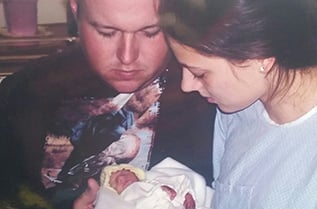ABCD1 sequencing is a molecular test used to identify variants in the gene associated with X-linked Adrenoleukodystrophy.
3 weeks
81405
$1,000
X-linked adrenoleukodystrophy is a neurological disorder characterized by MRI findings in the white matter and adrenal cortex and abnormal plasma concentrations of very long chain fatty acids. The condition can present in three different phenotypes, childhood cerebral form, adrenomyeloneuropathy, and Addison disease only. The childhood cerebral form has an onset of symptoms between ages 4-8 beginning with ADHD like symptoms with progressive cognitive, behavior, vision, hearing, and motor deterioration. Adrenomyeloneuropathy will usually present in males in their late twenties as sexual dysfunction, progressive paraparesis, sphincter disturbances and abnormalities in adrenocortical function. The mildest presentation is primary adrenocortical insufficiency without significant neurological involvement with onset ranging from two years to adulthood. Some carrier females may experience mild adrenomyeloneuropathy symptoms with a later age of onset.
Molecular testing is useful to confirm the diagnosis and to identify the disease causing mutations within a family to allow for carrier testing and prenatal diagnosis.
Sanger Sequencing
Sequencing of the ABCD1 gene will detect a mutation in about 99% of affected males and about 93% of carrier females.
The preferred sample type is 3-5 ml of peripheral blood collected in an EDTA (purple top) tube. Extracted DNA, dried blood spots, and saliva are also accepted for this test. Saliva samples must be submitted in an approved saliva kit. Contact the lab to receive a saliva kit or to have one sent to your patient.
The specimen should be kept at room temperature and delivered via overnight shipping. If shipment is delayed by one or two days, the specimen should be refrigerated and shipped at room temperature. Do not freeze the specimen. Samples collected on Friday can be safely designated for Monday delivery.
Prenatal diagnosis is available if the familial mutations are known. Additional fees for cell culture and maternal cell contamination may apply. Maternal cell contamination studies are required for all prenatal molecular tests. Contact the laboratory prior to sending a prenatal specimen.
Call our laboratory at 1-800-473-9411 or contact one of our Laboratory Genetic Counselors for assistance.
Robin Fletcher, MS, CGC
Falecia Thomas, MS, CGC
Alex Finley, MS, CGC
